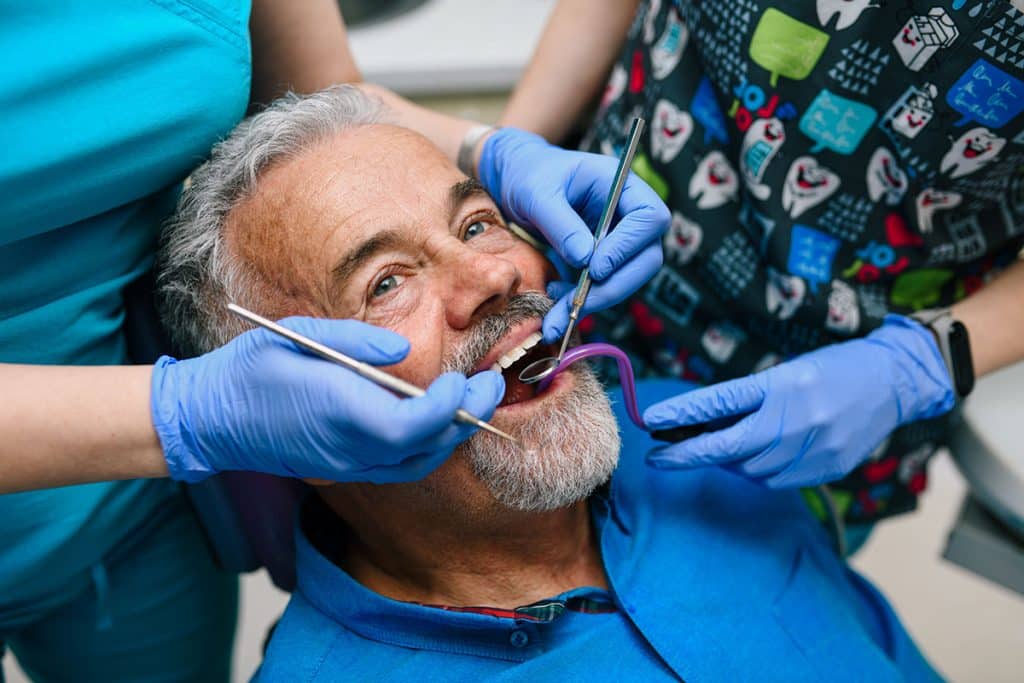How Often Should You Replace Old Dental Work?

When it comes to maintaining oral health, the longevity of your dental work plays a crucial role. Fillings, crowns, bridges, and other restorations are designed to last, but they aren’t permanent. Over time, even the most durable dental work can wear down, leading to potential oral health issues. Understanding when to replace old dental work is key to preserving your smile and avoiding future complications.
At Fairbanks Dental Associates, we prioritize proactive care to keep your dental health in peak condition. Here’s a detailed guide to help you understand when your old restorations may need attention.
Signs Your Dental Restorations May Need Replacing
Dental services, like fillings and crowns, don’t last forever. Over time, daily wear and tear can cause them to weaken or fail. Some common indicators that your dental work may need replacing include cracks, discoloration, or discomfort. For instance, a chipped crown may leave the underlying tooth vulnerable, while a darkened filling could signal leakage or decay beneath. If you notice these warning signs, it’s essential to consult with your dentist promptly.
Regular check-ups with your dentist can also reveal issues that may not be apparent to you. X-rays and exams can identify hidden weaknesses, ensuring problems are addressed before they escalate.
Average Lifespan of Common Dental Restorations
The lifespan of dental work depends on the type of restoration, the materials used, and how well it is maintained. For example:
- Fillings: Composite fillings generally last about 7-10 years, while amalgam fillings may last 10-15 years or more.
- Crowns: Porcelain crowns often last 10-15 years, though some can endure up to 20 years with proper care.
- Bridges: With consistent maintenance, bridges can remain functional for 10-15 years.
- Dentures: Full and partial dentures usually last 5-8 years before requiring replacement due to natural changes in the mouth.
Routine dental care, like brushing, flossing, and professional cleanings, can help extend the lifespan of your restorations.
Risks of Keeping Old or Damaged Dental Work
Failing to address aged or damaged dental work can pose serious risks. For instance, worn-down crowns may expose the underlying tooth to bacteria, increasing the risk of decay or infection. Additionally, old fillings can develop cracks, allowing harmful bacteria to seep in and compromise oral health.
Neglecting deteriorated restorations might also impact your bite alignment, leading to jaw pain and other complications. Regular evaluations enable your dentist to identify these risks early, minimizing potential harm and ensuring optimal functionality.
When to Consult Your Dentist
While general timelines offer guidance, individual circumstances differ. It’s crucial to schedule regular check-ups—ideally every six months—to assess the condition of your restorations. If you experience any discomfort, sensitivity, or changes in the appearance or feel of your dental work, don’t wait for your next appointment. Addressing concerns early helps prevent more extensive treatments down the road.
Frequently Asked Questions About Dental Services
How can I tell if my filling needs to be replaced?
Some signs that your filling may need replacing include sensitivity to hot or cold, visible cracks, discoloration, or if the filling feels loose. A dentist can confirm whether it’s time for a replacement through an examination.
Are there options to upgrade older dental work?
Yes, modern dental materials offer improved durability and aesthetics. For instance, metal amalgam fillings can be replaced with tooth-colored composite fillings for a more natural appearance. Your dentist can recommend the best options based on your needs.
At Fairbanks Dental Associates, we strive to provide comprehensive dental care that restores and maintains your oral health. Our experienced team offers a range of services, from preventive care to advanced restorative treatments, tailored to fit your unique needs. If you’re concerned about the condition of your dental work, we encourage you to schedule an appointment with us today! We’re here to ensure your smile stays as strong and healthy as possible.

